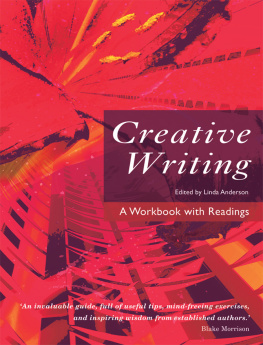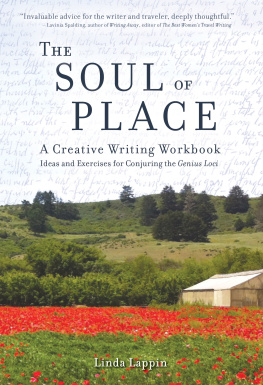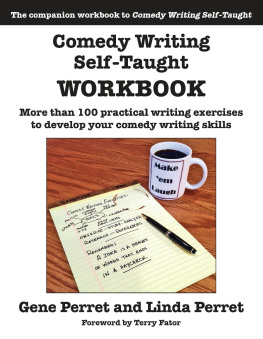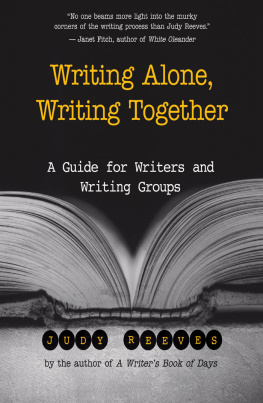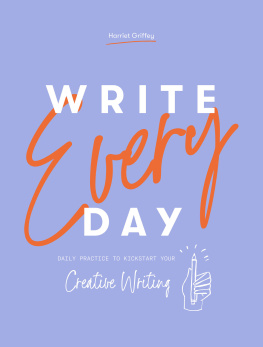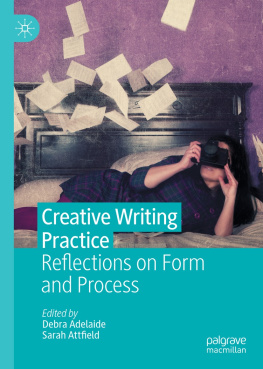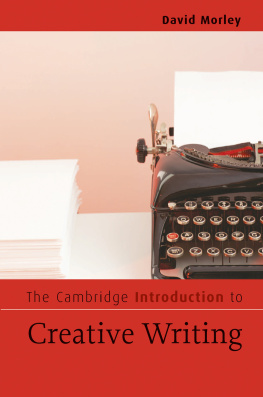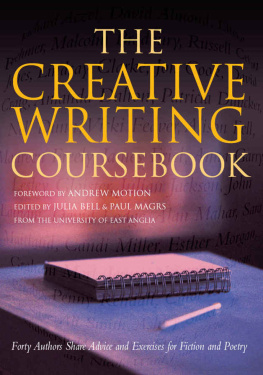For anyone getting going as a writer and even for those who have already made a start, this is an invaluable guide, full of useful tips, mind-freeing exercises, and inspiring wisdom from established authors.
Blake Morrison, poet, memoirist and critic
With so many angles covered and contributors insights included, this workbook avoids imparting systematised guidelines for writing creatively. A valuable source for dipping in and out of.
Russell Celyn Jones, novelist and critic, based at Birkbeck College, University of London
A creative writing book as good as this is a rare event. It works across genres; it works outside the academy in the world of real people; and it places reading in its right and honourable place, for no writer can be any good without also being a great reader. But the chief reason it works superbly is because it is written by writers. It is informed by their precise experience of the practice of writing, and that means imagination and practicality are given an equal value.
David Morley, poet and critic, Director of the Writing Programme, Warwick University
This is a wonderfully heterogeneous workbook: thoroughly researched, it addresses a wide range of genres and is written by expert practitioners. The book is rich in stimulus, technical analysis, practical strategies and ideas about the linguistic imagination that resonate throughout a generous range of writing samples. Its a major contribution to the pedagogy of creative writing, an invaluable resource for anyone teaching or learning the craft.
Graham Mort, poet and radio drama writer, Director of Postgraduate Studies, Creative Writing, Lancaster University
A contemporary, no-nonsense approach to creative writing. The authors have distilled a mass of wisdom on the subject of writing, putting forward a workmanlike approach, demystifying the process.
Monique Roffey, novelist and co-director of the Arvon Foundation s centre in Devon
This is an excellent companion to the creative process.
Justin Hill, novelist and travel writer
Creative Writing
Edited by Linda Anderson
A Workbook with Readings
This publication forms part of an Open University course A215 Creative Writing . Details of this and other Open University courses can be obtained from the Student Registration and Enquiry Service, The Open University, PO Box 625, Milton Keynes, MK7 6YG, United Kingdom: Tel. +44 (0)870 333 4340, email general-enquiries@open.ac.uk
Alternatively, you may visit the Open University website at http://www.open.ac.uk where you can learn more about the wide range of courses and packs offered at all levels by The Open University.
To purchase a selection of Open University course materials visit http://www.ouw.co.uk, or contact Open University Worldwide, Michael Young Building, Walton Hall, Milton Keynes MK7 6AA, United Kingdom for a brochure. Tel. +44 (0)1908 858785; fax +44 (0)1908 858787; e-mail ouwenq@open.ac.uk
Published by Routledge; written and produced by The Open University
Routledge
2 Park Square
Milton Park
Abingdon
Oxfordshire
OX14 4RN
The Open University
Walton Hall, Milton Keynes
MK7 6AA
First published 2006
Copyright 2006 The Open University
All rights reserved. No part of this publication may be reproduced, stored in a retrieval system, transmitted or utilised in any form or by any means, electronic, mechanical, photocopying, recording or otherwise, without written permission from the publisher or a licence from the Copyright Licensing Agency Ltd. Details of such licences (for reprographic reproduction) may be obtained from the Copyright Licensing Agency Ltd of 90 Tottenham Court Road, London W1T 4LP.
Open University course materials may also be made available in electronic formats for use by students of the University. All rights, including copyright and related rights and database rights, in electronic course materials and their contents are owned by or licensed to The Open University, or otherwise used by The Open University as permitted by applicable law.
In using electronic course materials and their contents you agree that your use will be solely for the purposes of following an Open University course of study or otherwise as licensed by The Open University or its assigns.
Except as permitted above you undertake not to copy, store in any medium (including electronic storage or use in a website), distribute, transmit or re-transmit, broadcast, modify or show in public such electronic materials in whole or in part without the prior written consent of The Open University or in accordance with the Copyright, Designs and Patents Act 1988.
Edited and designed by The Open University.
Typeset by Tradespools Typesetting Division of the Antony Rowe Group, Chippenham, Wiltshire.
Printed and bound in the United Kingdom by CPI, Bath.
British Library Cataloguing in Publication Data: applied for
Library of Congress Cataloging in Publication Data: applied for
ISBN: HB 0415 372429
PB 0415 372437
1.1
Contents
Five of the contributors are current members of the Literature Department at the Open University. The author of Part 3, Writing poetry , is W.N. Herbert of Newcastle University.
Linda Anderson is an award-winning novelist ( To Stay Alive and Cuckoo , both published by Bodley Head) and writer of short stories, poetry, performance pieces and critical reviews. Her work has been published in Britain, Ireland, USA and Australia. She has taught at Goldsmiths College and at Lancaster University, where she was Head of Creative Writing from 19952002. She has designed several successful courses, including a training programme for new writing tutors and an MA in creative writing by distance learning. She has also worked as a producer and director for BBC Radio Drama. She has a PhD in creative writing.
Mary Hammond began her career as a writer/researcher in the US mass-market paperback industry in the early 1980s. She has a PhD in British publishing history and is the author of Reading, Publishing and the Formation of Literary Taste in England 1880 1914 (Ashgate) as well as a number of articles on nineteenth- and twentieth-century publishing and book-selling. She has written and taught creative writing courses for the Open College Network, Middlesex University and the University of Southampton.
Sara Haslam completed her PhD, on Ford Madox Ford, in 1998 (University of London). She began her teaching career at Kings College, London and the Roehampton Institute, and was lecturer in English at University College Chester, where she helped to establish creative writing provision. At the Open University she has written course material for the Start Writing suite of courses, as well as A215 Creative Writing . She has published essays and articles on Ford, Henry James, and modernism, a multimedia CD-ROM on Thomas Hardys poetry, and her book, Fragmenting Modernism: Ford Madox Ford, the novel and the Great War was published by Manchester University Press in 2002. Current projects include an essay for the Blackwell Companion to Modernist Literature and Culture , and a study of Fords autobiography.
W.N. Herbert is an award-winning poet, whose last four collections, all published by Bloodaxe, have attracted numerous accolades: Forked Tongue (1994); Cabaret McGonagall (1996); The Laurelude (1998); The Big Bumper Book of Troy (2002). In 2000 he edited the best-selling anthology Strong Words: Modern poets on modern poetry with Matthew Hollis. He taught in the Department of Creative Writing at Lancaster University (19962002), and currently teaches Creative Writing and Modern Scottish Poetry in the School of English at Newcastle University. He has a DPhil from Oxford on the Scots poet Hugh MacDiarmid, which was published by OUP in 1992 ( To Circumjack MacDiarmid ). His next book of poems, Bad Shaman Blues, is forthcoming from Bloodaxe.

